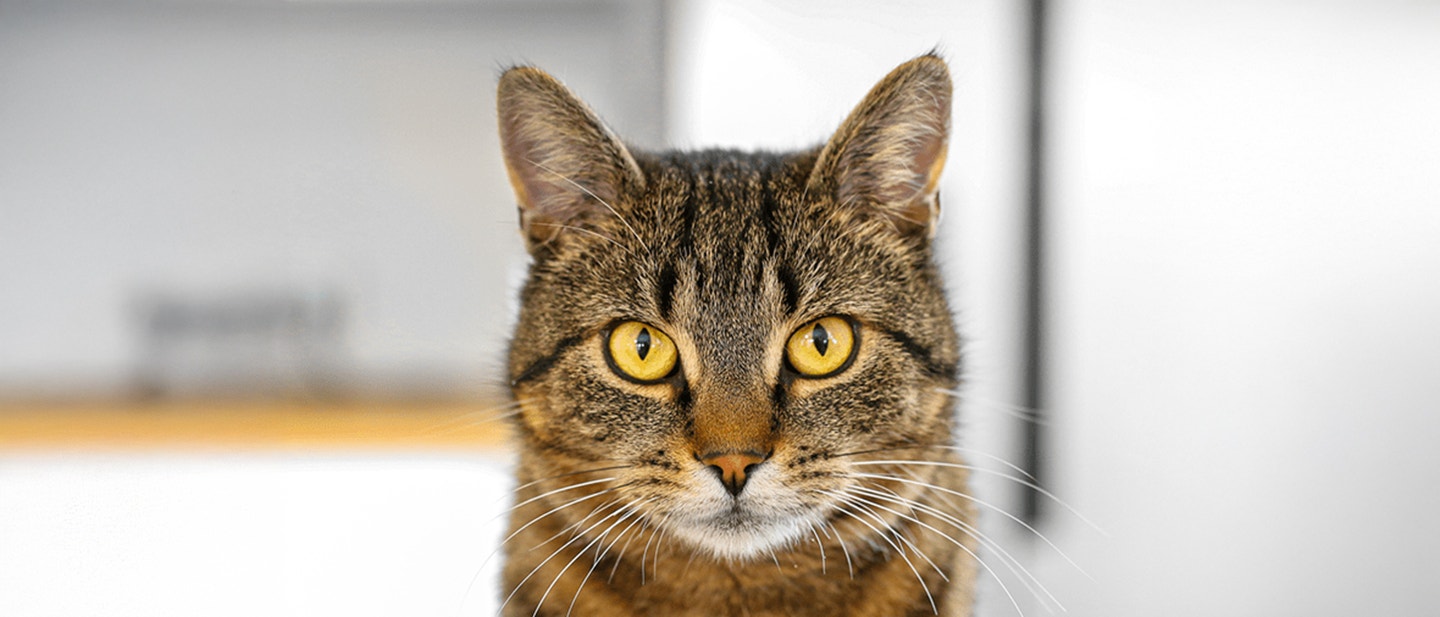
WHY DOES MY CAT HAVE DIARRHEA? AND WHAT CAN YOU DO TO HELP?

Article checked by a vet
Cat poop, not unlike human poop, should be soft yet solid with a formed shape - not too runny and not too hard. If your cat is experiencing runny poop and having accidents around the house, they are probably suffering with diarrhea. We know this can be stressful for you and your cat, but it’s important to remember that it is fairly common. That’s why we’ve created this article to answer all your questions on cat diarrhea: what could be causing it, what to look out for and what you can do to help your feline friend get through this time.
Causes of Diarrhea in Cats
There are different causes of diarrhea in cats. Sometimes, cat diarrhea is a one-off incident that happens all of a sudden and your cat otherwise seems fine. However, other times diarrhea can be a sign of a serious underlying illness. Cats, especially kittens and older cats, can quickly become dehydrated with diarrhea as they are losing essential water and nutrients through their bowel movements. That’s why it’s essential to assess the cause of cat diarrhea, as well as any other accompanying symptoms. Take a look at some of the most common causes we’ve listed below.
Change in Diet
Sometimes if a cat eats something different to what they’re used to, it can cause diarrhea. This is because cats are used to eating the same food everyday, so any sudden changes doesn’t give enough time for their digestive system to adjust. If your cat is an outdoor cat and is experiencing diarrhea, it is possible they may have been fed whilst visiting another house, helped themselves to another cat’s food or have caught and eaten a meal for themselves; any of these factors could cause an upset stomach.
Cat diarrhea caused by changes in diet is usually not a severe problem, and their tummy will likely settle after a few days. Generally, the best way to avoid this issue is to introduce new food slowly by mixing it into their usual food until they become more accustomed. Remember that whilst your cat is experiencing diarrhea, it’s essential to keep them hydrated.
Worms
Worms are a common, albeit nasty, issue and most cats experience it at some point in their lives. There are different types of worms: Roundworms, Tapeworms, Whipworms and Hookworms. You may notice worms in your cat’s poop, or find remnants around your cat’s bum. Worms settle in the intestine where they damage your cat’s gut lining and steal nutrients from the food they’re eating. This means the cat isn’t receiving essential nutrition, which is why other symptoms of worms can include weight loss and increased appetite.
Whilst this is common and is rarely a cause of concern, it can be serious for kittens who especially need these nutrients to grow in the early days. That’s why it’s important for you to deworm your cat regularly, which would be every 3-6 months for adult cats, and every 2 weeks for kittens from 3 weeks old to 16 weeks old.
Gut Parasites
Some parasites are wormlike, whilst others are one-celled parasites such as Isospora, Giardia and Toxoplasma. Isopora is a common gut parasite which causes little harm in adult cats, but can be dangerous for kittens. Girdia is experienced by less than 5% of cats*, with the majority of infections in young kittens. With Toxoplasma, you may not notice any symptoms, but diarrhea can be one, along with lethargy, respiratory problems and fever, but besides this it is rare for it to be fatal.
To treat gut parasites, you would need to administer prescribed medicine from a vet and then maintain sanitary conditions in your home, such as cleaning the litter box thoroughly and keeping up with flea and worm treatments.
Pancreatitis
Although this condition used to be rare among cats, it is being diagnosed more frequently. Cat diarrhea can be a sign of pancreatitis but is usually accompanied by other signs such as fever, nausea, loss of appetite and abdominal pain. Unfortunately, pancreatitis can’t be prevented and a veterinarian would need to carry out blood tests, imaging and biopsies. Owners can help their cat’s condition by ensuring hydration, working with their vet, managing pain with medication and providing nutritional food.
You may also notice mucus, blood or worms in their stool, which can indicate what the underlying cause could be.
If your cat is pooping outdoors, you may not notice changes in their bowel movements, but you can look out for soiled fur around their bum, which could be a sign of diarrhea.
But it’s not uncommon for cats to experience diarrhea sometimes, which might be why your cat might seem fine.
Or specific veterinary food for gastrointestinal problems. You can also provide anti-diarrheal medications to ease their symptoms.
It’s helpful to take photos of your cat’s faeces, as well as collecting a sample in a clean, disposable container, that you can show to your vet.
Thyroid tests will check your cat’s hormone levels too. You can support the diagnosis by keeping a written record and photos of the faeces, as well as any information on changes to your cat’s diet or environment when it first started, to really help your vet understand the scale of the problem.
Usually vets allow up to four days for you to see improvement, and then look into further testing. If your cat is suffering from severe dehydration, they may be hospitalised for IV fluid treatment.
Cat diarrhea can be a stressful experience for our feline friends and their owners too. The best way to manage what comes out the back-end, is to improve what goes in the top-end. Here at PERFECT FIT™, we’ve crafted many articles on your cat’s nutritional needs, including guidance on changing your cat’s food or feeding routine safely. Prevention and patience are essential to managing your cat’s diarrhea.
